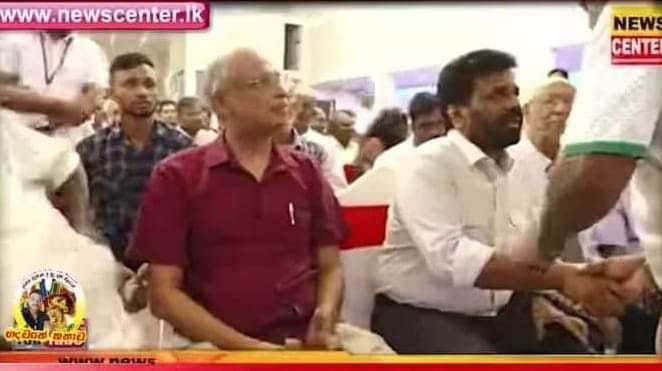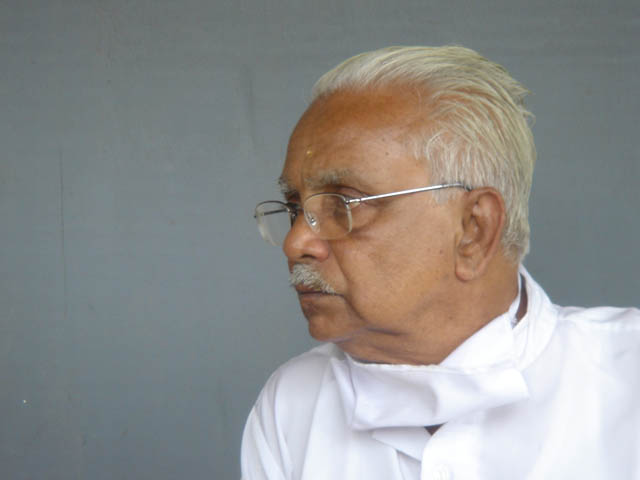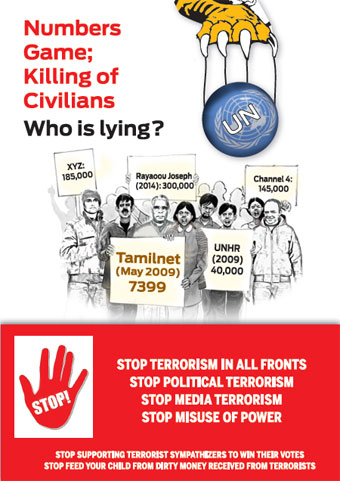THE TNA MANIFESTO
The manifesto of the Tamil National Alliance (TNA) has a section titled “OUR STAND ON A POLITICAL SOLUTION”. Of the 7 claims addressed by the TNA in this section the focus of this article is on the first 4 claims. They are:
- “The Tamils are a distinct People with their own culture, civilization, language and heritage and from time immemorial have inhabited this island together with the Sinhalese People and others.”
- “The contiguous preponderantly Tamil Speaking Northern and Eastern provinces is the historical habitation of the Tamil People and the Tamil Speaking Peoples.”
- “The Tamil People are entitled to the right to self-determination in keeping with United Nations International Covenants on Civil and Political Rights and Economic, Social and Cultural Rights, both of which Sri Lanka has accepted and acceded to.”
- “Power sharing arrangements must continue to be established as it existed earlier in a unit of a merged Northern and Eastern Provinces based on a Federal structure. The Tamil speaking Muslim historical inhabitants shall be entitled to be beneficiaries of all power-sharing arrangements in the North-East. This will no way inflict any disability on any People. “
TAMILS ARE A DISTINCT PEOPLE
CLAIM 1: “The Tamils are a distinct People with their own culture, civilization, language and heritage……”.
COMMENT: The culture, civilization and language of the Tamil people in Sri Lanka are transplants from Tamil sources outside Sri Lanka. The language and culture of the Tamils in Sri Lanka are no more distinct than the transplanted languages and cultures among English-speaking or Arabic-speaking people in Sri Lanka. Consequently, in Sri Lanka there is no basis for any group other than the Sinhala people, to claim that they are a distinct People with “their own language and culture”.
The Sinhala People in Sri Lanka can claim to be distinct on account of their culture, language and civilization because what they developed is unique and exists only in Sri Lanka; facts that can be established by hard evidence. In fact, as a result of the uniqueness of what the Sinhala People developed over the millennia, the island came to be identified only with the Sinhala People until the advent of colonialism.
Notwithstanding all of the above, political solutions should not be based on which group is distinct and which group is not. Instead, political solutions should be based on universal principles such as “the will of the People” meaning the will of all Peoples of a sovereign State, because this is what self-determination really means.
HISTORICAL HABITATION
CLAIM 2: “Tamil Speaking Northern and Eastern provinces is the historical habitation of
Tamil People and the Tamil Speaking Peoples”.
COMMENT: The dominant presence of the Sinhala People in the Eastern Province over millennia is an established fact that can be backed up by irrefutable historical evidence. Furthermore, the fact that the Eastern Province was part of the Kingdom of Kandy is evident from the Treaties between the Portuguese and the Dutch. Therefore, if there were Tamil and Tamil-speaking People in the Eastern Province their presence would have been as inhabitants of the Sinhala Kingdom. This may explain why there is NO evidence of the presence of a distinct Tamil and Tamil-speaking homeland being present in the Eastern Province prior to colonialism.
The Treaty of 1617 between the Portuguese and the Kingdom of Kandy “…had granted the king of Kandy the whole of the eastern seaboard of Ceylon including the ports of Trincomalee and Batticoloa (de Silva. C. R, The Portuguese in Ceylon 1617–1638, 1972, p. 1).
Having secured the ports of Trincomalee and Batticoloa from the Portuguese on behalf of the Sinhala King, the Dutch entered into a Treaty with the Sinhala King Raja Sinha. “The treaty clearly stated that forts captured from the Portuguese would be garrisoned by the Dutch, only if his Majesty thought it fit” (Goonewardena, K. W., The Foundation of Dutch Power in Ceylon, 1958, p. 32-33).
The fact that the Eastern Provinces should NOT be arbitrarily merged with the Northern Province was recognized in the Indo-Lanka Accord. Thus:
Article 2.3 of the Indo-Lanka Accord states: There shall be a referendum on or before 31 December, 1988 to enable the people of the Eastern Province to decide whether:
(a) The Eastern province shall remain linked with the Northern Province as one administrative unit, and continue to be governed together with the Northern Province as specified in 2.2, or
(b) The Eastern Province should constitute a separate administrative unit having its own district Provincial Council and a separate Governor, Chief Minister and Board of Ministers.
The Provincial Council Act of 1987 also has similar provisions. Therefore, the need to provide the opportunity for the people in the Eastern Province to decide whether the Eastern Province should be merged with the Northern Province or be independent is a fact that is recognized by both the Indo-Lanka Accord, as well as by domestic law, i.e., Provincial Council Act.
Article 2.17 of the Indo-Lanka Accord states; “The Government of India and Sri Lanka shall ensure free, full and fair participation of voters from all communities in the Northern and Eastern Provinces in electoral processes envisaged in the Agreement”.
The compulsion to merge the Eastern Province with the Northern Province is because of its economic potential. Without the Eastern Province the project to merge the two provinces fails. Recognizing the potential of the Eastern Province, S.J.V.Chelvanayakam stated on April 25, 1949: “The land which is now in jungle was studded with ancient irrigation works of great magnitude, which when restored, would supply water for the cultivation of the whole area” (Wilson, A. J., Political Biography of S.J.V.Chelvanayakam, 1994, p.31).
Indeed, the fact that the project to merge was a contrived exercise crafted with deliberate intent is evident from the following statement from the same source: “From the beginning Chelvanayakam concentrated on (as he put it) ‘indoctrinate’ the Tamil-speaking people of the Eastern Province. He quickly realized that they constituted the frontline” (Ibid).
The compulsion to incorporate the Eastern province in a merged unit with the Northern Province was put to the test when the Tamil leadership sought a mandate to establish a separate state incorporating the two provinces during the election of 1977. During this election 73% of the voters in the Eastern Province opposed the idea of a separate state. Only 27% of the voters in the Eastern Province supported a separate state. Even in Batticaloa with a 71% Tamil majority ONLY 32.5% voted for a separate state. Also, in Ampara with a Tamil-speaking majority ONLY 22% voted for a separate state. These results demonstrate that the Tamil People and the Tamil-speaking People of the Eastern Province were collectively opposed to the idea of merging with the Northern Province to form a common political unit. Thus merging the two provinces without a referendum would be to violate Article 21 Clause 3 of the Universal Declaration of Human Rights which states: “The will of the people shall be the basis of the authority of the government…”. Furthermore, it violates the fundamental right that all citizens have equal rights and are equal before the law. Under the circumstances, India and the International Community cannot afford to stand by and allow the will of the Peoples of the Eastern Province to be violated to fulfill the ambitions of a Tamil leadership.
Therefore, any attempt to arbitrarily merge the Eastern Province with the Northern Province by any Government in order to accommodate the demands of the TNA despite all the evidence presented above and in defiance of the treaty provisions of the Indo-Lanka Accord and as well as domestic law should be resisted at all cost with appeals to the International Court of Justice if necessary.
CLAIM 3: “The Tamil People are entitled to the right to self-determination”.
COMMENT: While the UN instruments cited in the TNA manifesto clearly state: “All peoples have the right of self-determination…” the TNA manifesto states that ONLY the “Tamil People are entitled to the right of self-determination”. By making ONLY the Tamil People entitled to the right of self-determination, the Tamil-speaking Muslims and the non-Tamil-speaking Sinhala People would be discriminated against because they have been excluded from what constitutes the “Self” that has the right of self-determination. By creating 2 groups, one with the right of self-determination and the rest without such a right is to make a mockery of self-determination since it is expected to be a right enjoyed by all the Peoples within a defined territory, and not only by a group that perceives itself to be “distinct”.
Antonio Cassese in his book titled “Self-determination of Peoples – A Legal Reappraisal (1995) states: “The legal position …summarized by the International Court of Justice in its Advisory Opinion on Namibia… (is that) if the population of a colonial territory is divided up into various ethnic groups or nations, they are not at liberty to choose by themselves their external status. This is because the principle of territorial integrity should here play an overriding role” (p. 72).
The Declaration on the Principles of International Law Concerning Friendly Relations and Co-operation among States in Accordance with the Charter of the United Nations states: “Nothing in the foregoing shall be construed as authorizing or encouraging any action which would dismember or impair, totally or in part, the territorial integrity or political unity of sovereign and independent States conducting themselves in compliance with the principle of equal rights and self-determination of peoples as described above, and thus possessed of a government representing the whole people belonging to the territory without distinction as to race, creed or colour”.
Thus, attempting to claim the right of self-determination ONLY for the Tamil People and not for others is to “disturb or impair” the political unity of the sovereign state of Sri Lanka. Furthermore, the right of self-determination for the Tamil People would affect the right of self-determination of the Sinhala and Muslim Peoples not only in the Northern and Eastern Provinces but also throughout the country. Recognizing the right of self-determination for a select few negates the very foundation of self-determination which is a collective entitlement enjoyed by all citizens constituting a sovereign state. Therefore, a referendum to determine whether any two provinces are to merge should be a National referendum involving all the citizens of Sri Lanka as called for by Article 4 (e) of the Constitution.
CLAIM 4: “Power sharing arrangements…in a unit of a merged Northern and Eastern Provinces based on a Federal structure. The Tamil speaking Muslim historical inhabitants shall be entitled to be beneficiaries…”.
COMMENT: While the Tamil People are entitled to the right of self-determination the Tamil-speaking Muslim historical inhabitants are not only denied the right of self-determination but “entitled to be beneficiaries of power-sharing arrangements”. On the other hand, the non-Tamil-speaking Sinhala People are not only denied the right of self-determination but are also denied being beneficiaries of any power-sharing arrangement. This is a level of discrimination amounting to Apartheid, and should shame the TNA. If the Tamil community in the Northern and Eastern Provinces endorse the concepts in the TNA manifesto by voting for the TNA at the August 17th Election, it should shame them too. Such arrogance is beyond comment.
Both India and the International Community should be aware that the TNA manifesto seriously discriminates against the interests and rights of the Sinhala and Muslim People. Despite their awareness they have not prevailed on the Tamil leadership the need to conform to international norms and practices in their search to address their concerns. In this regard, the US in particular is suggesting a federal structure as a suitable arrangement to resolve Sri Lanka’s national question despite the fact that historically federal arrangements have proved to be unstable. Furthermore, such suggestions amount to direct intervention in the internal affairs of a sovereign state in violation of the Declaration on the Principles of International Law Concerning Friendly Relations and Co-operation among States in Accordance with the Charter of the United Nations.
Article 3 (1) of the above Declaration states: “No State or group of States has the right to intervene, directly or indirectly, for any reason whatever, in the internal or external affairs of any State. Consequently, armed intervention and all other forms of interference or attempted threats against the personality of the State or against its political, economic and cultural elements, are in violation of international law.
Article 3 (2) of the above Declaration states: “No State may use or encourage the use of economic political or any other type of measure to coerce another State in order to obtain from it the subordination of the exercise of its sovereign rights and to secure from it advantages of any kind. Also, no State shall organize, assist, foment, finance, incite or tolerate subversive, terrorist or armed activities directly towards the violent overthrow of the regime of another State, or interfere in civil strife in another State”.
Article 3 of the above Declaration states: “Every State has an inalienable right to choose its political, economic, social and cultural systems, without interference in any form by another State”.
Therefore, the recommendation by spokespersons of the US for a federal system as being appropriate for Sri Lanka is a direct intervention in the internal affairs of Sri Lanka. This amounts to the violation of International Law.
CONCLUSION
The claim in the TNA manifesto that the Tamil People are distinct and entitled to the Northern and Eastern Provinces as their homeland with the right of self-determination exclusively for themselves within a federal system is not only discriminatory by other communities but is also in violation of UN instruments, the Indo-Lanka Accord and Sri Lanka’s domestic law. Such notions are reflective of a captive past. Pragmatism requires that the TNA embarks on a more realistic approach to evolve a durable political solution. The recommendation by the International Community, and in particular the US for a federal arrangement as being suitable for Sri Lanka, is also unrealistic without the consent of ALL the Peoples of Sri Lanka. Furthermore, such a recommendation is an act of direct intervention in Sri Lanka’s internal affairs. This is a violation of the UN’s International Declaration relating to Friendly Relations between States. Therefore, the Sri Lankan nation has to be vigilant to ensure that any attempts to violate the collective “will of ALL the Peoples of Sri Lanka” are prevented at all cost including bringing such attempts to the attention of the International Court of Justice. Failure to do so would mean that Sri Lanka would end up being a dismembered State.
By Neville Ladduwahetty
951 Viewers














